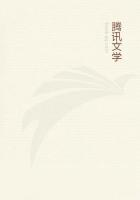This may serve as an indication of the tendency of manorial communities to consider privileged villainage as a free tenure, but legal pleadings and decisions were also cresting confusion for another reason, because they tended, as has been said, to consider the whole body of men on the ancient demesne in one lump as it were. The courts very often applied as the one test of tenure and service the question whether a person was a descendant by blood of men of ancient demesne or a stranger.(96*) In connexion with this the court rolls testify to the particular care taken to control any intrusion of strangers into the boundaries of a privileged manor.(97*) This was done primarily in the interests of the lord, but the tenantry also seem to have sometimes been jealous of their prerogatives,(98*) and it is only in the course of the fourteenth century that they begin to open their gates to strangers, 'adventicii.'(99*) However this may be, the practice of drawing the line between native stock and strangers undoubtedly countenanced the idea that all the tenants of native stock were alike, and in this way tended to confuse the distinction between freeholders, pure villains, and villain socmen.
The courts made several attempts to insist on a firm classification, but some of these were conceived in such an unhappy spirit that they actually embroiled matters. The conduct of the king's judges was especially misdirected in one famous case which came up several times before the courts during the thirteenth century. The tenants of Tavistock in Devonshire were seeking protection against their lords, and appealing to the right of ancient demesne. The case was debated two or three times during Henry III's reign, and in 1279 judgment was given against the plaintiffs by an imposing quorum, as many as eight judges with the Chief Justice Ralph Hengham at their head. It was conceded that Tavistock was ancient demesne, but the claimants were held to be villains and not villain socmen, and this on the ground that the Domesday description did not mention socmen, but only villains.(100*) It seems strange to dispute a decision given with such solemnity by men who were much better placed to know about these things than we are, but there does not seem to be any possible doubt that Hengham and his companions were entirely wrong. Their decision is in contradiction with almost all the recorded cases; it was always assumed that the stiff Domesday terminology was quite insufficient to show whether a man was a pure villain or a free man holding in villainage, which last would be the villain socman in ancient demesne. If Hengham's doctrine had been taken as a basis for decision in these cases, no ancient demesne tenancy would have been recognised at all out of the Danelaw counties, that is in far the greater part of England, as Domesday never mentions socmen there at all. In the Danelaw counties, on the other hand, the privilege would have been of no use, as those who were called socmen there were freeholders protected without any reference to ancient demesne.
Altogether the attempt to make Domesday serve the purpose of establishing the mode of tenure for the thirteenth century must be called a misdirected one. It was quite singular, as the courts generally went back upon Domesday only with the object of finding out whether a particular manor had been vested in the crown at the time of the Conquest or not. It should be noted that Bracton considered the case from a very different point of view, as one may judge by the note he jotted down on the margin of his Note-book against a trial of 1237-8. He says: 'Nota de villanis Henrici de Tracy de Tawystoke qui nunquam fuerunt in manu Domini Regis nec antecessorum suorum et loquebantur de tempore Regis Edwardi coram W. de Wiltona.'(101*) Wilton's decision must have been grounded on the assumption that the ancestors of the claimants were strangers to the manor, or else that the manor had never formed part of the ancient demesne. This would, of course, be in direct contradiction to the opinion that the Tavistock tenants were descended from the king's born villains.
I cannot help thinking that Hengham's decision may have been prompted either by partiality towards the lord of the manor or by an ill-considered wish to compress the right of ancient demesne within the narrowest bounds possible. In any case this trial deserves attention by reason of the eminent authorities engaged in drawing up the judgment, and as illustrating the difficulties which surround the points at issue and lead to confusion both in the decisions and in the treatment of them by law writers. In order to gain firm ground we must certainly go back again to the fundamental propositions laid down with great clearness by Bracton. It was not all the tenants on ancient demesne soil that had a right to appeal to its peculiar privileges-some had protection at Common Law and some had no protection at all. But the great majority of the tenants enjoyed special rights, and these men of ancient demesne were considered to be free by blood and holding in villainage. If the books had not noticed their personal ******* in so many words, it would have been proved by the fact that they were always capable of leaving their tenements and going away at pleasure.
Bracton does not restrict himself to this statement of the case; he adds a few lines to give a historical explanation of it.
'At the time of the Conquest,' says he, 'there were free men holding their lands freely, and by free services or free customs.















